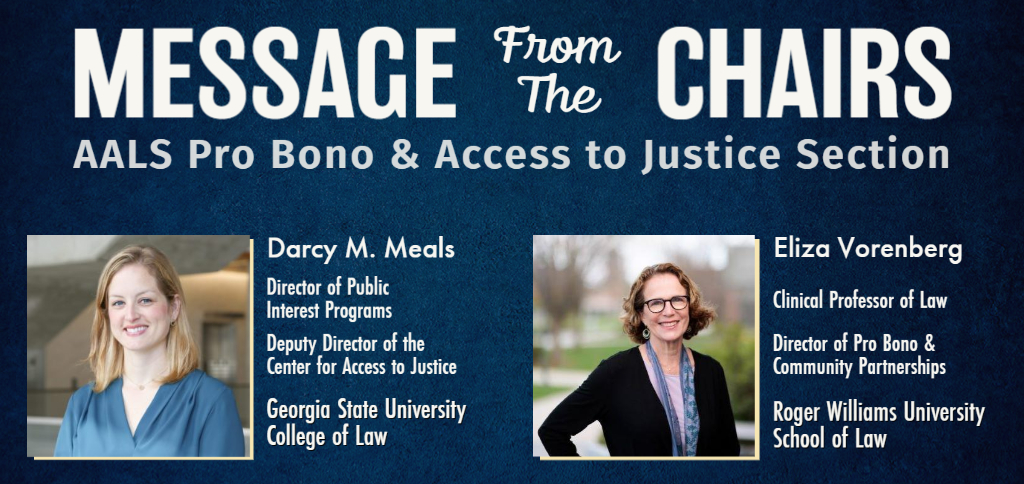
Scott Cummings recently wrote about the late great Deborah Rhode that she had an “unflagging and courageous commitment to placing social justice and reform at the center of her work” and that “she called on us all” to make pro bono “live up to its ideals” and “to connect it to other strategies for access to justice.” Cummings, Scott, AN ODE TO RHODE: IN PRINCIPLE AND IN PRACTICE, 91 Fordham L. Rev. 1201, 1205 (March 2023)
Rhode’s perspective feels especially on point now as we all approach this next school year. How can we fulfill Rhode’s call as we plan our pro bono programming? With more and more low-income, disenfranchised people going without the legal help they desperately need and, as result, falling further into poverty, making pro bono “live up to its ideals” with the next generation of lawyers feels especially urgent. Perhaps we can help our law students understand that they will be the keepers of the justice system and responsible for addressing the justice gap by broadening the lens through which they understand ABA Rule 6.1 to include a professional responsibility to attend to, and work to close, the justice gap, and to improve the quality of justice, not only through the provision of pro bono service but through impact and reform work. Could we help them see the opportunity they will have as members of our profession to address the root causes of the justice gap and take on the work of finding effective solutions to this crisis? This coming school year, we’d love to hear your thoughts on whether and how to talk to law students about this. Are you considering:
- explaining the role of the lawyers’ monopoly on legal services in preventing those who most need our help from getting it, and pointing to the medical profession’s use of nurse practitioners and physician’s assistants to increase access to medical care,[1]
- discussing Civil Gideon and the possibility of a right to counsel in civil cases where basic human needs are at play,
- making sure they know the history of our civil legal services program, and how funding and anti-poverty mechanisms were gutted in the 1970s, greatly undermining LSC-funded organizations’ capacity to engage in critically important reform work, and
- challenging them to consider the quality of justice imparted on those with less means-both in civil and criminal cases
As we train our law students to be advocates for their clients, let’s think about and discuss how we can train them to be advocates for the justice system generally.
Thanks for reading our newsletter and letting us know if you’d like to join our conversations. We’re a welcoming group.
Darcy and Eliza
[1] Our very own Darcy Meals co-wrote a piece on this. Check it out here: https://illinoislawreview.org/online/a-prescription-for-increased-access-to-justice